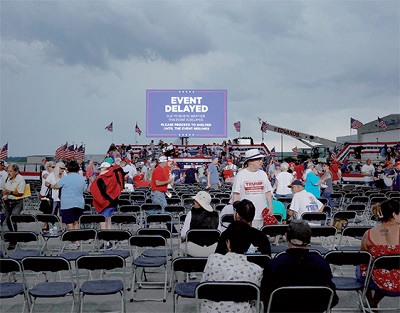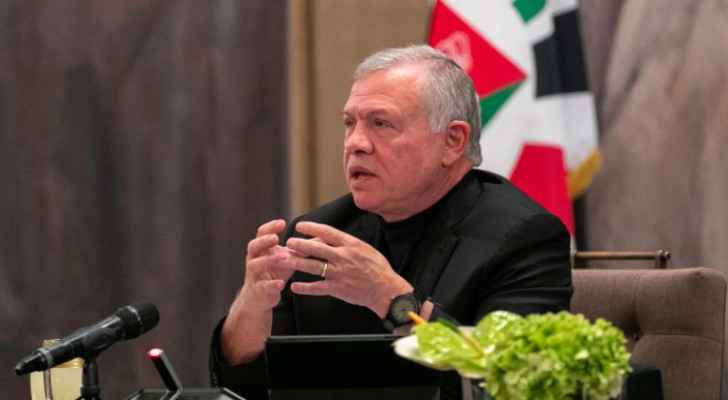The Muslim American lobby is divided and ineffective - By Hussain Abdul-HussainSunday, Alarabiya
Despite their best effort to help US Senator Bernie Sanders win the Democratic presidential nomination, Muslim-Americans have been unable to move the needle. Sanders not only lost, but was wiped out, first in Minnesota, the state of Muslim-American Congresswoman Ilhan Omar, and second in Michigan, the state of Muslim-American Congresswoman Rashida Tlaib. Both Omar and Tlaib had endorsed, stumped for and supported Sanders against frontrunner in the race, Joe Biden.
Muslim American voters number some one million, out of 130 million registered voters, in the US. Their small number has not stopped them from organizing themselves into a dozen or more organizations, some calling themselves Arab-American, others Muslim-American, with the line between the two blurred.
According to a survey by the Council on American-Islamic Relations (CAIR), 58 percent of America’s Muslims voted for Sanders on Super Tuesday, while 27 percent voted for competitor, former Vice President Joe Biden. These numbers leave out Republican Muslims, and there are no numbers to show the percentage distribution of Democrats to Republicans among Muslim Americans.
But just because there are no numbers, does not mean that all Muslim-Americans oppose US President Donald Trump, a Republican. In fact, Trump won a lot of favor when he avenged the death of an Iraqi-American contractor killed after an attack on a US base in Iraq by Iranian-backed militias. Trump went on to order a strike that killed Iran’s top military commander General Qassem Soleimani, an operation that was commended by wide swaths of Americans of Syrian, Lebanese, Iraqi and Iranian descent.
And while many believe that the majority of Muslim Americans support Democrats and oppose Republicans, Muslim Republican nominees running for Congress — such as Iraqi-American Dalia Al-Aqidi, who is trying to unseat Ilhan Omar in the Fifth District of Minnesota — can dispel such myth.
In fact, many Arab-Americans, perhaps a silent majority, feel frustrated with the foreign policy of the Democrats, like under Trump’s predecessor President Barack Obama, who was seen as lenient on the troublemaking Iranian regime, and who let the Syrian carnage go unchecked. If Sanders becomes president, America’s foreign policy will be even worse than under Obama. The Vermont senator promises to go after all of America’s allies in the Middle East, while arguing that the only way with Iran is through dialogue.
Perhaps it is his bias toward Iran that made Sanders so endearing to some Arab-Americans. “President Bernie will fight for the rights of the Palestinian people, for the children of Yemen,” said Amer Zahr, an American of Palestinian origin, during a campaign rally for Senator Bernie Sanders in Dearborn, Michigan. Syria’s Bashar al-Assad regime, which had just displaced close to a million Syrians in its Idlib province and had ordered strikes against them, killing scores including children, went unmentioned in Zahr’s speech.
And because Sanders promises to embrace the mullahs of Iran, he has won the support of non-Arab Muslims, such as Huda Katebi, an Iranian-American with the Iranian lobby in Washington, known as the National Iranian-American Council (NIAC). When Trump tweeted the US flag after killing Soleimani, Katebi’s loyalty to her ancestral homeland dominated her allegiance to America. She replied to Trump’s tweet: “Light it on (expletive) fire.”
Not only are Arab-Americans and Muslim-Americans not a monolithic bloc, divisions can be also detected within the ranks of pro-Sanders Muslim-Americans. When the Democrats in Congress led a vote on recognizing that the Ottoman Turks massacred Armenians over a century ago, Tlaib voted for the legislation, while Omar abstained.
People like Zahr, Tlaib, Omar and Katebi pretend that to talk on behalf of all of Muslims in America, and try to drag them into issues that are contentious among Muslims, just like issues that are debatable between all other Americans.
Until Muslims in America and Americans of Arab stock understand the limits of organizing along religious or cultural lines, their organizations will remain amateurish, their bark louder than their bite, and their influence nearly invisible.
Latest News
Most Read Articles
- Trump postpones first rally since trial began, due to bad weather
- King attends civil defence exercise
- Netanyahu vows to increase military pressure on Hamas
- JAF carries out 8 more airdrops of aid to northern Gaza
- “Israeli” army says it approved plans for “continuation of war in Gaza”
- 25.3% increase in tourism departures in 2024 — report
- Housing Bank Holds Its 51st General Assembly Meeting
- Erdogan arrives in Baghdad for first official visit since 2011
- Violence-battered Ecuadorans vote on anti-crime measures
- Visa to launch global innovation programmme 'VEI' in Levant region for first time in June




